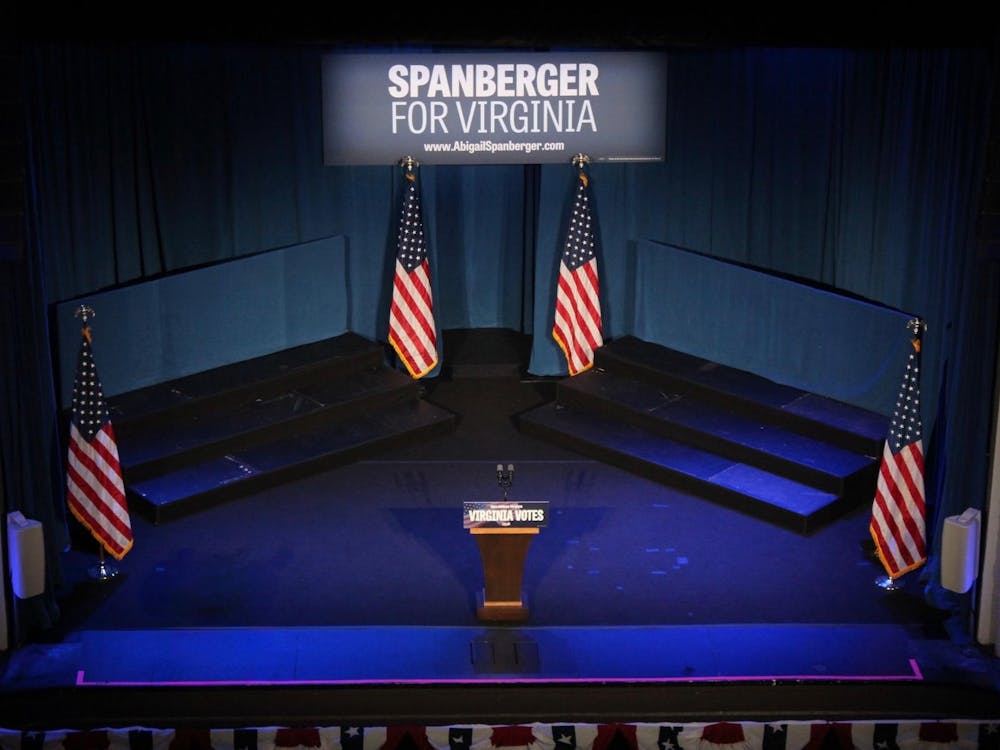When students last led a Living Wage Campaign at the University, a standoff between campaign supporters and administrators ensued, culminating when 17 student protesters were removed from a Madison Hall sit-in in handcuffs. Three years later, the economy is markedly worse and students are taking a less pointed, more long-term approach to petitioning the University to increase the minimum wage for its employees.
The Living Wage Campaign recently resumed efforts to increase the University’s minimum wage of $10.14 to $11.42, said campaign organizer Melissa McCrumb, a fourth-year College student.
She said a group of mutual friends started discussing the effort last semester and brought their ideas to fruition at a meeting of 15 students and faculty members Tuesday night.
“Our goal is to involve as many people as possible,” McCrumb said. “We do not want this to be a student-based movement; we want to involve the community [and] especially workers here at the University.”
McCrumb said students are pursuing the issue despite economic strains on the University, which include a state-implemented salary freeze.
“I would say there is never a good time to not talk about issue,” McCrumb said. “This is an issue that will always be with us. Standing up for the dignity of our workers is important, regardless of the economy.”
Fellow organizer Rachyl Smith echoed this sentiment, adding that students are meeting to raise awareness about the issue.
“We’re not blind to [salaries being frozen], we’re not trying to lead anyone — we’re just trying to talk about the issue of a living wage,” Smith said.
University spokesperson Carol Wood explained that the $10.14 base hourly wage translates to $16.05 an hour when benefits, such as healthcare and social security, are included. Not including benefits, an employee’s annual salary at the base $10.14 hourly rate is $21,092, Wood said.
“We think that is a good minimum hiring rate, because [when] we look at the market — for these positions that these people are in — we believe that that is a fair and equitable minimum wage given the job and requirements needed to fulfill those jobs,” Wood said, adding that the University has conducted a market analysis of every job at the University within the last year.
Yet Smith said a fair wage and a living wage are two different things, and that the cost of living in a certain locality should be factored into wages.
“As a student, I expect the school that I go to to exhibit the same dignity towards students that I would want if I were ... an administrator,” she said.
Wood said employees earning the $10.14 entry-level wage can augment their yearly salaries by participating in the Essential Work Skills Program, which raises the hourly rate of program graduates to $10.43 and results in a $600 increase at the end of the program, or through a supplemental benefit credit of $300, which is available to employees making less than $40,000 a year. This funding can provide for employees’ benefit reductions and increase take-home pay, Wood explained.
When Living Wage protesters were arrested for trespassing after a standoff with administrators in Madison Hall in April 2006, friction between the University and campaign supporters continued through the students’ trial in Charlottesville General District Court in June, in which those arrested were acquitted.
Though Smith said she and other students are not trying to distinguish themselves from the most recent campaign, she did point out that “we’re not connected to it at all, we’re completely different people and we’re not under the leadership of anyone [who participated] in it.”
Smith attributed the attention students have received for their recent meeting to the legal battle that ensued years before and said students are currently focusing on education and outreach.
“There’s all this anxiety about it because of the last time, but that’s the only reason there’s anxiety about it, not anything we as a group might potentially do,” she said, adding that describing the effort as a “battle” or even a “campaign” misconstrues the students’ mission and approach.
McCrumb said students have a long-term plan in mind, which is different from previous campaign efforts.
The impetus for meeting this semester came from student concern and interest in the issue, rather than any complaints from University employees dissatisfied with their wages, McCrumb said.
“I know that in the previous campaigns there was a lot of outreach to the workers and listening to their concerns, and that is something that we are definitely going to be focusing on in the future,” she said.
Wood emphasized that the University’s primary concern is keeping all workers on the payroll, despite unfavorable economic conditions.
“Our focus is on keeping our employees here at the University employed at the University,” Wood said. “When you look at the unemployment rate, it’s a difficult time for everybody.”
McCrumb also said student organizers have not yet contacted administrators about the issue.






